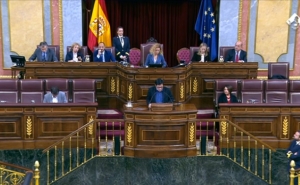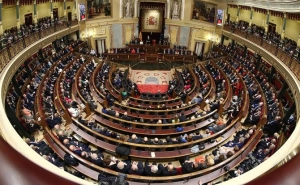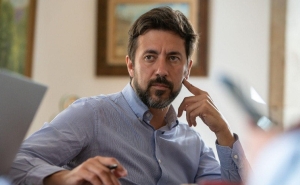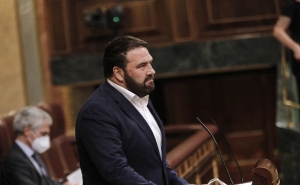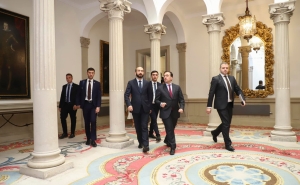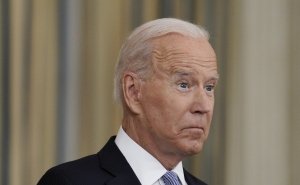Will the New Parliament of Catalonia Fight for Independence

Since January 17, the flag of Catalonia is again on Spanish newspapers and periodicals. The Catalan referendum has become more relevant in public debate. The thing is that on January 17 the first session of the newly elected Parliament of Catalonia was held, and all the views were directed towards the region.
This occurs in the face of a series of crucial events ahead of the October 1 independence referendum, followed by the proclamation of independence, Madrid's application of Article 155 of the Constitution and the restriction on the autonomy of the region, the collapse of the government of Carlos Puigdemont and the arrest or escape of a number of Catalonian officials, and, of course, the extraordinary parliamentary election on December 21, as a result of which the majority of mandates in the Catalonian parliament was gained by the independent forces (70 out of 135 seats), while the "Citizensʺ Party which gained the highest number of votes was in favor of united Spain.
The poll conducted by the Spanish "El Pais" newspaper before the elections had shown that citizens in Catalonia would vote for the independence. The results of the poll actually justified themselves. It is also important to note that the pro-independence parties, despite the fact that they did not make a joint election, are now able to maintain the much needed solidarity.
As you know, Roger Torent, Catalonia's left-wing Republican Party MP, has been elected the President of the Catalonian parliament. This party is one of the most active supporters of the region’s independence. As reported by Spanish media, all parties supporting independence have voted for him. Josep Costa, a member of the party "For the sake of Catalonia", was elected first vice speaker of the party, and the second vice speaker became a member of the "Citizens" party, Jose Maria Espejo.
The appointment of high-ranking officials in the region began with the launch of the parliament, and the parliamentary majority did not waste time to nominate their candidates.
Thus, having a majority in the parliament will create great opportunities for those who want independence. They even consider the former head of the government of Catalonia, Carlos Puigdemont, as head of the new government. The latter, as known, has got asylum in Belgium, while Spanish Prime Minister Mariano Rajoy will not tolerate the "illegal" government in Catalonia. Rajoy's recent statements show that Madrid will not cancel Article 155 of the Constitution if the new head of the Catalonian government becomes an "undesirable person."
However, "Together for Catalonia" and "Catalonia's left-wing republicans" have already agreed to nominate Puigdemont, so again a new clash can be expected in Madrid-Barcelona relations, this time around the Catalonian authorities.
These very forces announced earlier that they would defend Roger Torent's candidacy as the head of the regional parliament, and now assure that they will fight for Puigdemon. At the first session, the newly elected speaker of the Catalonian parliament stated that first they had to get rid of Madrid's direct control, which would definitely not be easy even for the parliamentary majority.
With regard to the arrests of the people, who organized Catalonia's Independence Referendum and Declaration of Independence, some of them have appealed to the Supreme Court of Spain several days ago. They are the president of the Omnium Cultural NGO, Jorge Quichar, the head of the Catalonian National Assembly, Jorge Sanchez, and Joachim Forn, a former advisor to the Catalonian government's interior affairs. They were elected as members of the Catalonian parliament of the new convocation from "Together for Catalonia" party. They promised the court to abandon the parliamentary mandate if their faction did not give up the idea of Catalonia's independence.
Is the change of political viewpoint the freedom price of the newly elected deputies?
Although Madrid has still managed to maintain Spain's unity, the process that began in Catalonia has not only deeper roots, but also a tendency to develop. Catalonia's aspiration for independence from Spain has both serious political and financial-economic implications, as well as ideological-psychological sources of national, linguistic and other peculiarities.
-
 17:08
17:08The regular session of the Anti-corruption Policy Council takes place in Jermuk
-
 15:05
15:05The Prime Minister sends congratulatory messages to the supreme leader of Iran and the President of Iran
-
 11:11
11:11Armenia sends earthquake aid to Turkey
-
 10:43
10:43Commemoration of the Pontiff St. Sahak Partev
-
 09:16
09:16Some roads are closed and difficult to pass in Armenia
-
 19:55
19:55Phone conversation of the Foreign Minister of Armenia with the U.S. Assistant Secretary of State for European and Eurasian Affairs
-
 18:30
18:30Prime Minister Pashinyan and President Khachaturyan meet
-
 18:20
18:20Ararat Mirzoyan with Co-Chairman of the OSCE Minsk Group of France Brice Roquefeuil
-
 17:01
17:01Humans could land on Mars within 10 years, Musk predicts
-
 16:45
16:45France, US urge 'immediate' end to Nagorno Karabakh blockade
-
 16:01
16:01Blockaded Nagorno Karabakh launches fundraiser to support quake-hit Syria
-
 15:59
15:59Earthquake death toll in Turkey rises to 18,342
-
 15:43
15:43Ararat Mirzoyan Held a Telephone Conversation with Sergey Lavrov
-
 15:06
15:06French president rules out fighter jet supplies to Ukraine in near future
-
 14:47
14:475 Day Weather Forecast in Armenia
-
 14:44
14:44President Vahagn Khachaturyan wrote a note in the book of condolences opened in the Embassy of Syria in Armenia
-
 14:20
14:20Azerbaijan’s provocations impede establishment of peace and stability – Armenian FM tells Russian Co-Chair of OSCE MG
-
 12:57
12:57France representation to OSCE: Paris calls on Azerbaijan to restore freedom of movement through Lachin corridor
-
 11:40
11:40Command of Kosovo forces highly appreciated preparation of Armenian peacekeepers
-
 10:16
10:16The United States withdrew from sanctions against Syria for six months the provision of assistance after the earthquake
day
week
month
Humidity: %
Wind: km/h


